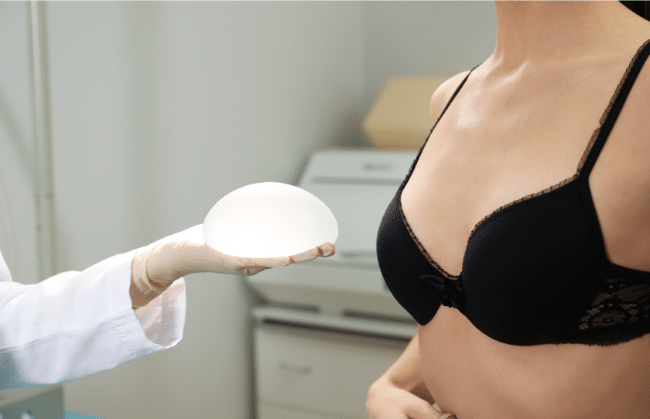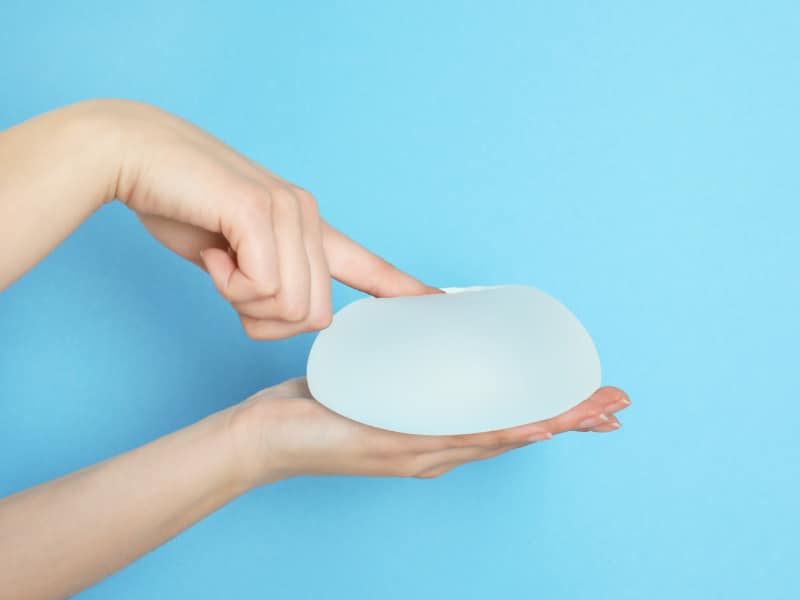Breast augmentation is one of the most popular plastic surgeries for women. Patients frequently choose this procedure to increase the breast size, shape, or make one match the other.
Houston breast augmentation surgery is performed under general anesthesia and takes about 90 minutes. Your plastic surgeon can use several procedures, depending on your needs and anatomy.
The most common augmentation procedure involves an incision in the breast crease to minimize visible scar tissue. Next, the surgeon creates a pocket for the implant either above or below the chest muscle.
Finally, the incisions are closed and covered with bandages.
Most breast augmentations with breast implants go well, and patients are happy with the results and the breast augmentation recovery period. But if you’re thinking about this procedure, it’s critical to understand the risks before you move forward. Please keep reading to learn more.
Most Common Breast Implant Complications
Below are the most common complications and dangers of breast augmentation surgery. Your plastic surgeon should spend plenty of time reviewing the risks and answering any questions you have:
Infection
Infections after breast implants are rare, but they can cause serious complications. Infection may involve the incision, and signs include redness, swelling, fever, and pain.
The surgeon will give you antibiotics to treat the infection. If that doesn’t work, you may need revision surgery. But you will probably need to wait three months before another implant is placed.
Bleeding
If there is bleeding in the breast implant pocket after the procedure, it will need to be taken out, and the bleeding stopped.
The surgeon also will wash out the pocket and put in a new implant. Watch for signs of bleeding, including excessive swelling, pain that doesn’t go away, and bruising.
Capsular Contracture
After the breast implants are placed, your body will develop a scar capsule around the implant. This scar tissue is normal, but sometimes the capsule will contract around the breast implant. This is called capsular contracture. This will cause a non-uniform breast appearance.
The breast implant will need to be removed and replaced. Note that about ⅓ of breast implant patients experience capsular contracture. If this happens more than once, you may need to remove the breast implants permanently.
Breast Asymmetry
One of the breast implants may move from its proper position and be higher than the other. This problem with breast implants usually needs to be corrected with another surgery. Some have found that textured breast implants help avoid this problem.
Mammography Problems
The breast implant will make it more challenging to see some natural breast tissue during a mammogram. This problem is less pronounced if the implant is placed under the muscle.
Calcifications
Breast implants that have been in the patient for a decade or more may lead to calcifications in the capsule around the breast implants. But these calcifications are usually easy to tell apart from calcifications that can point to breast cancer.
Implant Deflation
A breast implant may leak from a deformity in the implant shell. Note that saline breast implants have a deflation problem in about 1% of patients.
Breast Implant Illness
Breast Implant Illness (BII) encompasses symptoms potentially linked to breast implants. While the exact cause is uncertain, breast implant illness may involve autoimmune or inflammatory responses. Typical signs include fatigue, joint pain, brain fog, and rash.
Anaplastic Large Cell Lymphoma
Anaplastic large cell lymphoma (ALCL) represents an uncommon form of T-cell lymphoma, with the potential to manifest at any age, although it predominantly affects children and young adults. Its occurrence is observed more frequently in males than females. Notably, in rare instances, ALCL may emerge within the fibrous breast tissue surrounding a breast implant, giving rise to a condition known as breast implant-associated ALCL (BIA-ALCL)
Considerations Before Breast Augmentation
Are you thinking about breast augmentation? It’s essential to weigh the benefits and risks of this procedure before you decide. Some factors to review before scheduling breast augmentation surgery include:
Type of Breast Implants
FDA has approved saline and silicone implants in the United States. Saline breast implants contain saline solution, while the other contains silicone gel.
Of the types of breast implants many patients prefer silicone breast implants because they may feel more natural. However, some are concerned that silicone could leak into the body and cause an adverse reaction.
Silicone implants were taken off the market by FDA in the early 2000s, but today they are approved and regarded as safe for most patients.
Saline breast implants contain saline solution, so there is less concern about what may happen if the implant leaks.
How Long Implants Last
Before having this surgery, remember that breast implants aren’t intended to last forever. Implants, both aline and silicone, usually last between 10 and 20 years. But you may eventually need another breast surgery to replace or remove breast implants.
Also, remember that a breast enhancement won’t stop the aging process. You will still have sagging and stretched skin as you age. But you can have a Houston breast lift to bring your breasts to their natural position.
Family And Medical History
You also should consider your family and medical history before having this surgery. For example, if you have a history of cancer in your background or family history, you may want to think about whether this is a good option.
Cancer is a rare complication from a breast enhancement surgery, but you should consider the benefits and risks of this surgery before going ahead.
Risks vs. Benefits
Consider if your desire to have an improved appearance outweighs the potential risks of augmentation. It’s understandable if you want breast implant surgery as part of Houston breast reconstruction.
But breast augmentation is optional, and you should only proceed if you are aware of all the risks compared to the benefits.
Finding The Right Plastic Surgeon
Anyone who considers this breast procedure, or other plastic surgeries such as liposuction or a tummy tuck, should be sure they can access a skilled plastic surgeon. That way, you can be confident that their procedure will be done correctly.
Also, it’s essential to choose an honest and open surgeon with you. The surgeon should give you the best healthcare advice, even if it means not moving forward with the procedure.
Breast augmentation usually offers excellent results. But it’s important to understand all the risks before setting up your procedure. Your plastic surgeon will discuss breast augmentation risks during your consultation.
We offer both breast augmentation types including fat transfer breast augmentation!
Questions and Answers
What are the safest implants to get?
Saline and silicone breast implants are deemed safe. Ongoing research assesses their safety and efficacy, ensuring comprehensive understanding.
Are breast implants worth it?
Enhanced self-image and confidence are invaluable, and a majority of women affirm the worthiness of this procedure. RealSelf.com reports a 97% satisfaction rate in user reviews for breast implants.
Who shouldn’t get implants?
In general, individuals in good mental and physical health can be candidates for breast implants. However, if you are pregnant, breastfeeding, have breast cancer, or an abnormal mammogram, this surgery may not be suitable for you.
Request a Houston Breast Augmentation Consultation

References
- Breast Augmentation Safety. (n.d.). Accessed at https://www.plasticsurgery.org/cosmetic-procedures/breast-augmentation/safety
- Breast Augmentation Overview. (n.d.). Accessed at https://www.mayoclinic.org/tests-procedures/breast-augmentation/about/pac-2039317
- Breast Augmentation Surgery Risks. (n.d.). Accessed at https://www.breastimplantcancer.org/blog/breast-augmentation-surgery-risks/













